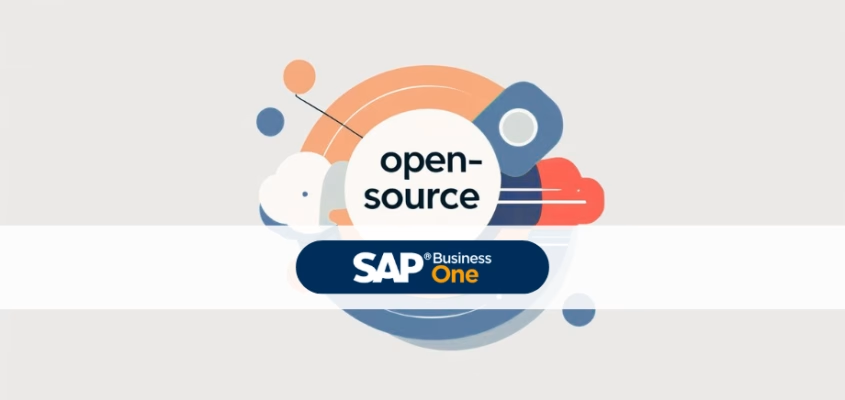Even in the recent past, open source was considered to be the way forward, because free alternative to closed systems such as SAP Business One. And for some companies, an open-source solution is not a bad approach either. For the rest, however, other things count in the software sector: reliability, costs and the basis for development. Can open source ERP software deliver this?

Not all open source is the same
In today's software landscape, it's easy to lose track of things. Almost for every single process there is also a special open source solution that makes everything even better, more efficient and easier. However, these solutions only help if they are used in the right place. This requires the Software-companies also need to know where the respective system should be used. But that's not so easy. Every open source solution has a different focus, which is then supplemented by additional functions. These must first of all harmonise from a technical point of view and also be optimisable in the long term. In other words, the software should be structured in such a way that further development is possible.
Too complex, too much adaptation
The lack of opportunities for further development is also the reason why there is little interest in open source ERP. A good ERP system is characterised by its ability to grow with the company. However, ERP software is so complex that a solution should be designed with this in mind. In terms of functionality, only a small part of open-source systems is often covered, which makes the Need for adaptation on the other hand. It is also necessary for every company to be able to rely on the functionality of its ERP system in order to avoid economic damage. The years of work that go into a ERP solution The complexity of the value-added processes is therefore probably better reflected in the complexity of the value-added processes.
Open source ERP ... too expensive
Customisation of ERP systems is cost-intensive. This is no different with open source ERP solutions. Since - as already mentioned - ERP software is somewhat complex, the company's internal IT department often lacks the necessary expertise. Know-how and make the necessary adjustments. But external means expensive. And experts for open sourceERP are not exactly a dime a dozen. Responsibility for the system shifts to one or a few people in the company. A monopoly that is not healthy for companies when it comes to failures. This is another reason why companies often prefer to opt for a standardised Industry solution. Open source ERP often seems attractive to many companies due to the lack of licence fees. However, the customisation costs will far exceed these.
Even though a large number of developers are working on open source solutions, it is still only possible in some cases to create a standardised basis for all open source solutions. Industry sectors and companies. Standardised software often does not cover all functions, but it does cover the essential ones. And without these, a ERP system makes little sense. Open source ERP is not a good alternative, especially for small and medium-sized companies.

Monolithic ERP systems in SMEs: challenges, solutions and risk management

SAP Business ByDesign vs SAP S/4HANA Cloud

SAP Business One vs SAP Business ByDesign

Business process reengineering before ERP implementation

Introduction of business software - surprisingly not technological


